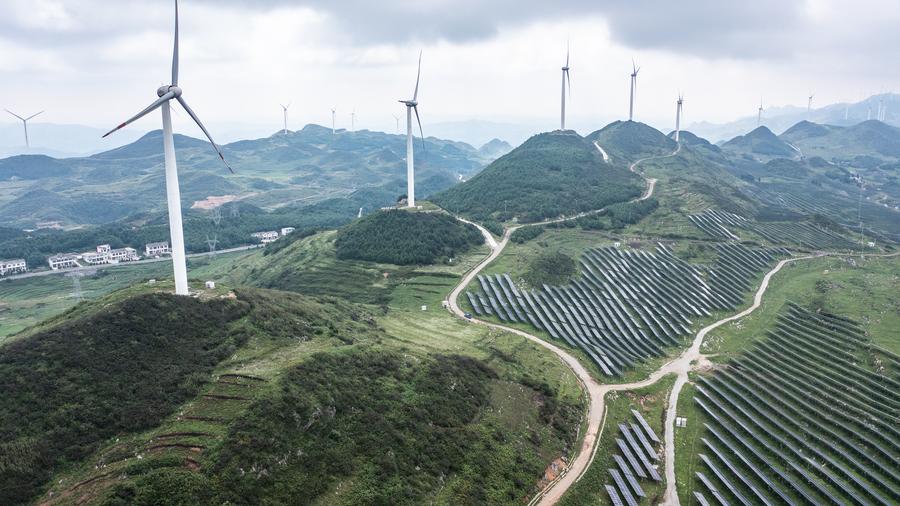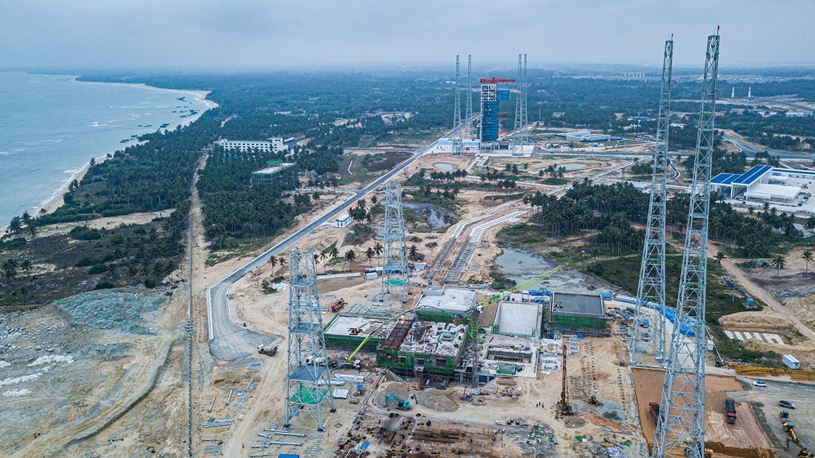by John Ross, from Britain
When Chinese friends asked me to explain the anti-China rhetoric on the economy in the West, I told them firstly you have to distinguish what the people in the West think and what various media and governments in the West think. Most people in the West are not overly concerned with the question of China, because they've got their own problems like the economic situation in their own countries, inflation and the decrease of real wages.
But the Western media and governments are indeed obsessed with the situation, because they won't come to a realistic estimate of the situation. The realistic estimate of the situation is that China's economy is growing much more strongly than their economies, not only since 1978, but also in the recent period. Let's take last year, 2023, because the data is just out. The U.S. economy grew by 2.5 percent in that year. The Chinese economy grew by 5.2 percent. China's economy grew more than twice as fast as the United States but Western media put out all claims that there's a deep crisis in China and the U.S. economy is doing incredibly well, which is contradicted by the facts.
According to my calculations, in the past four years since 2019, China's economy has grown by slightly over 20 percent. The U.S. economy grew by 8.1 percent, and the eurozone grew by about 3 percent. China's economy grew 2.5 times as fast as the United States and almost seven times as fast as the eurozone.
I was told a long time ago, that if facts and a theory don't coincide, there are only two things one can do. One is to be a sensible person who abandons the theory, the other is a dangerous one who abandons the real world, and regrettably, we've seen the second choice taking place in the U.S. media. They've engaged in a lot of fake news and claims.
The Chinese economic model produces very rapid growth. In the longer term, to double China's GDP and GDP per capita between 2020 and 2035, China needs to grow 4.7 percent a year. Calculated on an average basis, this means that it needed to grow about 15 percent between 2020 and 2023. China has actually grown faster -- by about 17 percent in the period. Following this trend, if this growth continues it will be a side effect of China's development that China's economy will become larger than the United States, but China's goal is not to overtake the U.S. economy. The goal is to have the highest possible standard of living for the Chinese people.

You can't cheat on the facts. This doesn't stop fake news about China from appearing in lots of Western media. There are several reasons for that. One is in my opinion, there is no doubt that there is intervention by the U.S. intelligence services into this. The same false claims appear in numerous newspapers on exactly the same day, and it is not credible to believe that this is accidental. We know from public research that the United States spends billions of dollars a year in influencing so-called privately owned media by paying journalists and planting stories.
Some is simply sloppy journalism, but behind it is arrogance. Numerous white people can't conceive that the Chinese people or any others, except people who are descended from Europeans, could be the most successful.
Unfortunately, we witness the U.S. attempt to slow down China's economy, because the United States has set for itself an impossible goal, which is the U.S. economy should remain the largest in the world. But the United States has not been capable of speeding up its own economy. If the United States wants to engage in competition by speeding up its own economy, that's not a problem for anybody. What is unacceptable and dangerous is that the United States tries to compete by slowing down China's economy, and by attempting to prevent the Chinese people from having the best possible standard of living. They're not going to accept that. No country in the world will say well we're not going to have the best possible standard of living so that the United States can be the number one economy in the world.
To compete by trying to slow down other economies, the United States subordinates rational economic activities to this goal and damages other countries and economies. If you take my own country. Huawei, for example, used to be a very important part of the British telecommunications system. The U.S. government insisted that Huawei should be taken out of the British telecommunications system, the result of which is that we're going to get 5G later, and it's going to be more expensive, which is negative for the British economy.
Some of its very close allies are prepared to subordinate their own interests to those of the United States. But others, the great majority of the world's countries, are not doing that. They're not doing so because they're neither pro-China nor pro-America. They're pro themselves. But because they want to develop their own countries, they don't agree with some of the things that the United States wants them to do in the interest of the United States. And the United States doesn't like the fact that it can't control them anymore.
China is a large economy, and its development objectively aids other countries in their pursuit of national independence. That's why the successful development of the Chinese economy is considered by the United States to be a threat, because it makes it harder for the United States to order other countries to do what the United States wants against their own interests. Most countries are not being friends with China to be against the United States. They're just being friends with China in order to develop their own countries.
In economics win-win is not just nice words. It's real -- economists have known this since the founding of the subject. Along with the development of its own economy, China's development is objectively aiding all sorts of countries around the world. That's why so many of them want to participate in the Belt and Road Initiative or apply to join BRICS. The majority, not simply many but the majority, more than 70 percent of the countries in the world, for example, have signed up to the Belt and Road Initiative. So the United States can put out a story that everything is disastrous in China. But instead, the other countries want to have good relationships with China. China now has far more main trading partners than the United States, so the United States may say everything is disastrous in China, but trade figures of other countries tell them a different story, and their companies find that China is a more important market for them and a more important place to import or export to than the United States.
Since the international financial crisis in 2008, the Western economies in terms of their growth rates have never really recovered from the crisis. Therefore, China's rapid economic growth has been the most powerful factor in the development of the world economy. It is very important that China's economic growth continues in this way, first and foremost for its own people, but obviously for the rest of the world as well.
China's system is its biggest advantage. When running its economy, China is able to use state investment, and at the same time has a very strongly developing private sector. If you want to put it that way, the Chinese economy can walk on two legs. The U.S. economy for ideological reasons and for capitalism doesn't want to have a powerful state sector. So it's like the U.S. economy only has to walk only on one leg.
That is the most fundamental reason why the Chinese economy will continue to grow in this way. China has achieved the most rapid economic growth of any major country that has ever existed in the whole of human history. Look at it historically, when the People's Republic of China was founded in 1949, China was almost the poorest country in the world. Now it has already achieved moderate prosperity by its standards, and it's going to become a high-income economy in the following years by World Bank criteria. That means somebody who was born in the poorest country in the world would become a citizen in a high-income economy. For major economies, there has never been anything like that in the entire history of humanity. This is the advantage of socialism.
Decades ago, in the 1980s, I thought from the point of theoretical economics, that China's economy should be very successful. I wrote an article in 1992 about why the economic reform will succeed in China and fail in Russia. At that time, people said to me, why are you so interested in China? Shouldn't you be interested in Japan or Germany? I said it is because China's economic policies are correct. It will be extremely successful. If you don't believe me now, come back, and we'll discuss the thing after 10 years or 20 years. Now nobody asked me "Why are you so interested in China?"
My view about China's success started from very fundamental questions of economic theory as all countries are subject to the general laws of economics, and I saw that China was carrying out policies in line with this. Naturally, you can't repeat any country's policies mechanically somewhere else. China insists upon applying the general laws of economics in its own specific national conditions. That is why, as a result, China is so successful.
Editor's note: John Ross is a senior fellow at the Chongyang Institute for Financial Studies of the Renmin University of China. He is a former director of economic and business policy for the mayor of London.
The views expressed in this article are those of the author's and do not necessarily reflect the positions of Xinhua News Agency.■












